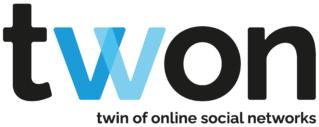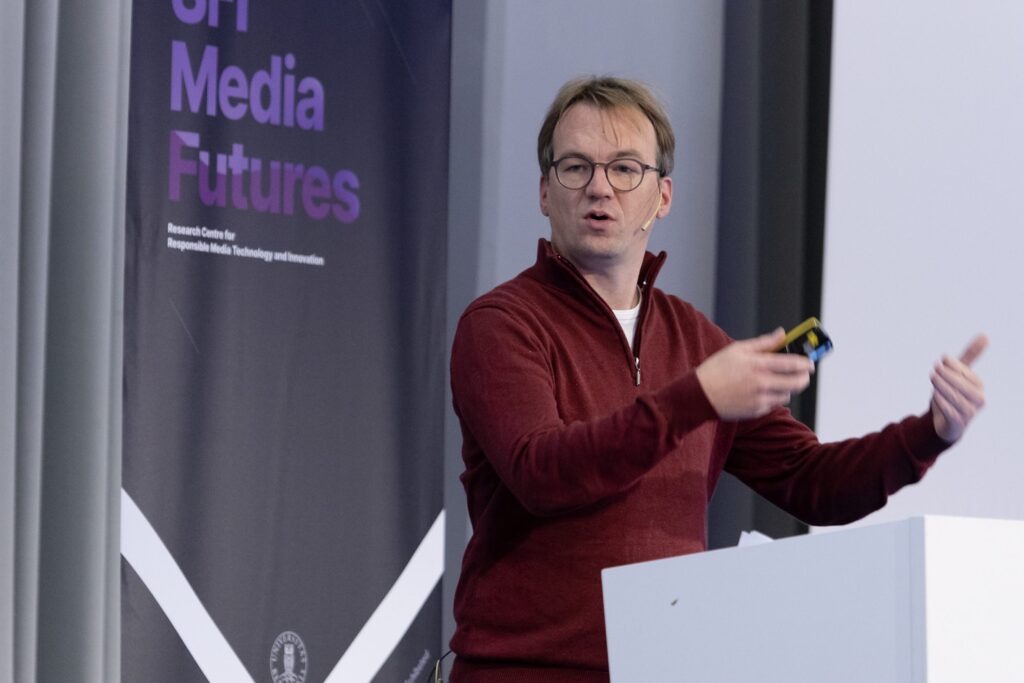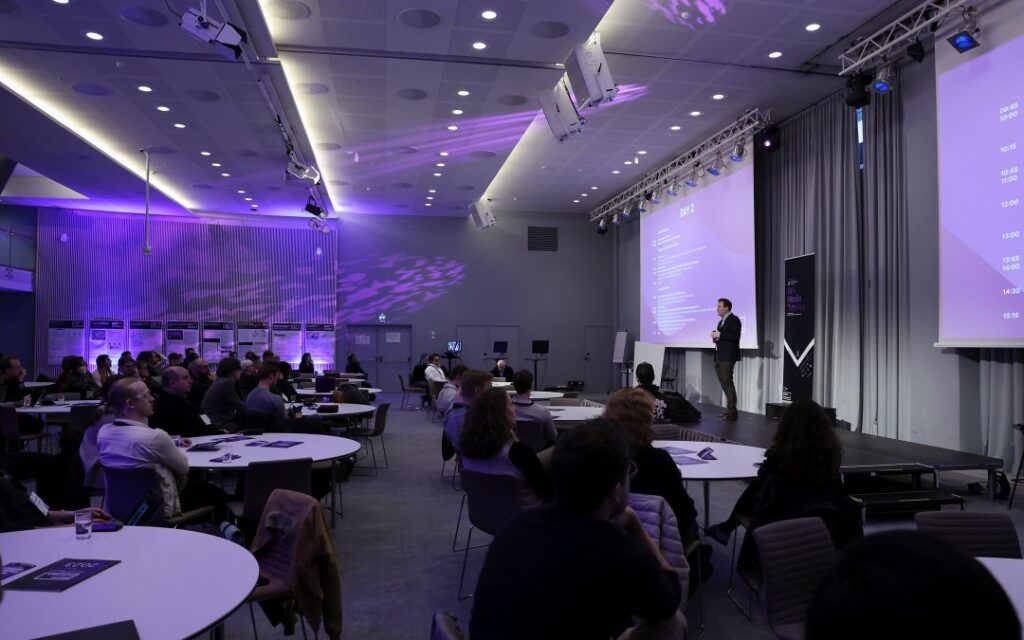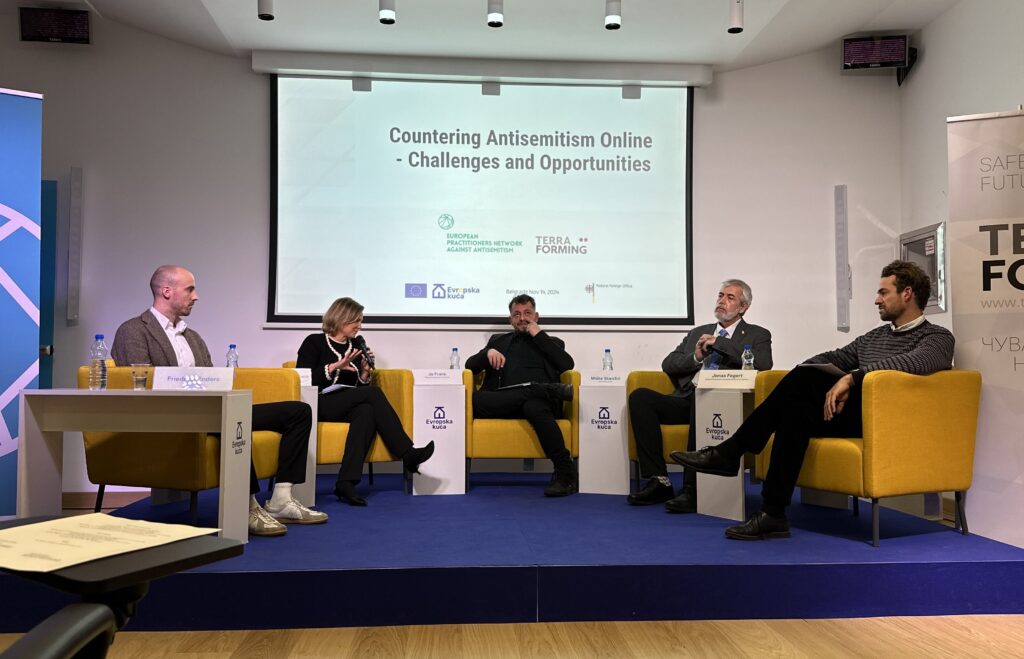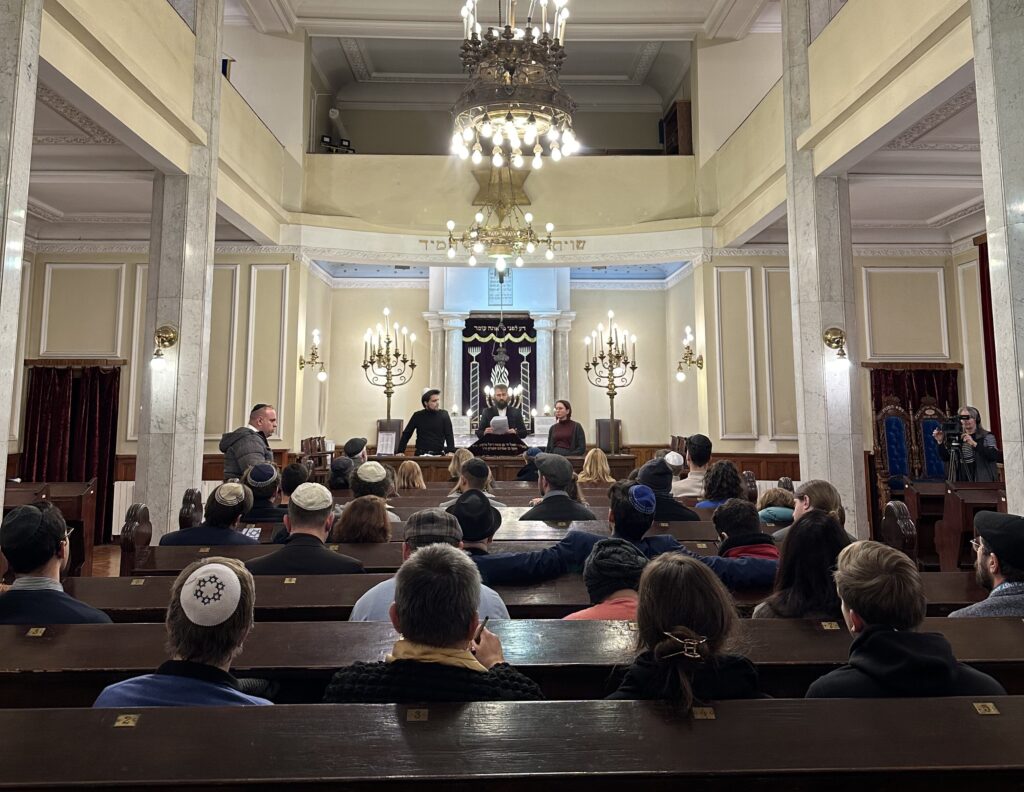The first TWON Citizen Lab took place in Karlsruhe!
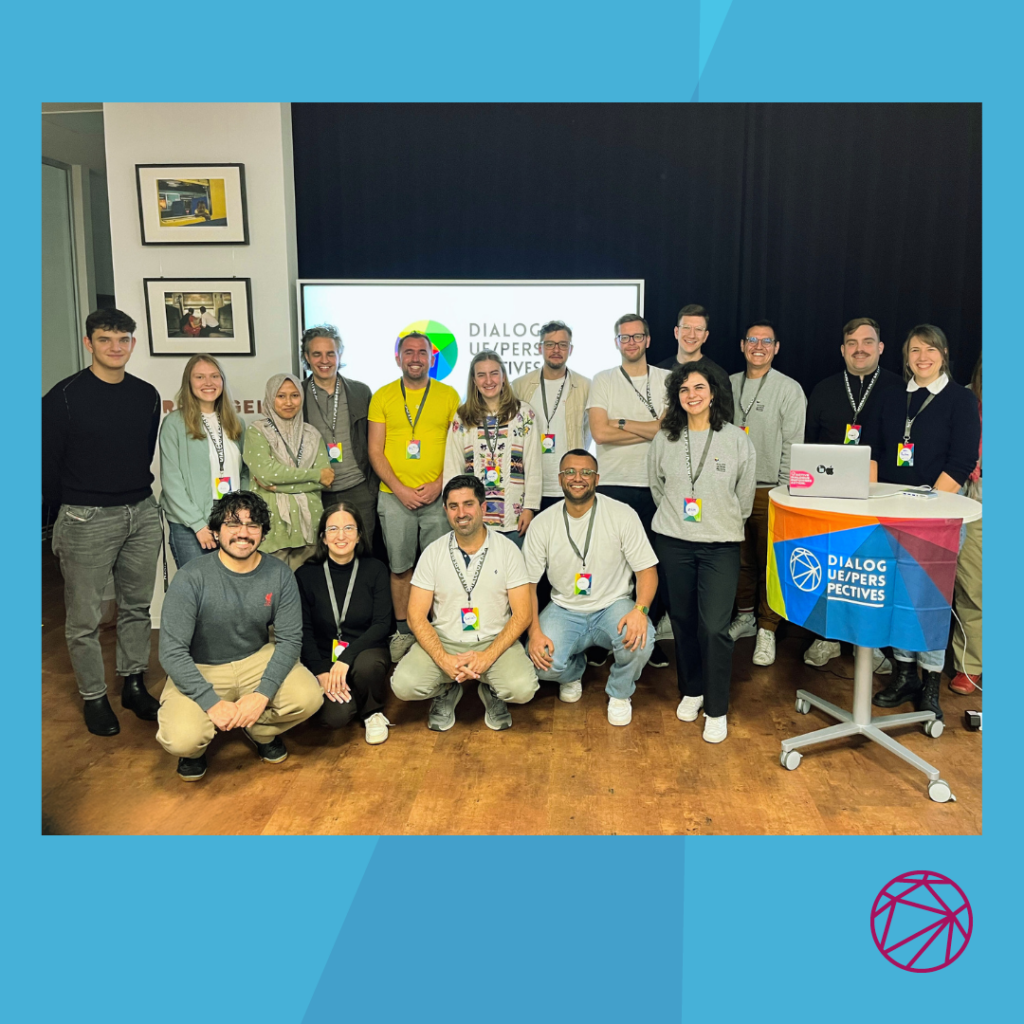
As part of the Days for Democracy Karlsruhe the participants of DialoguePerspectives’ European Leadership Workshop discussed on how online social networks influence democracy in the digital age.
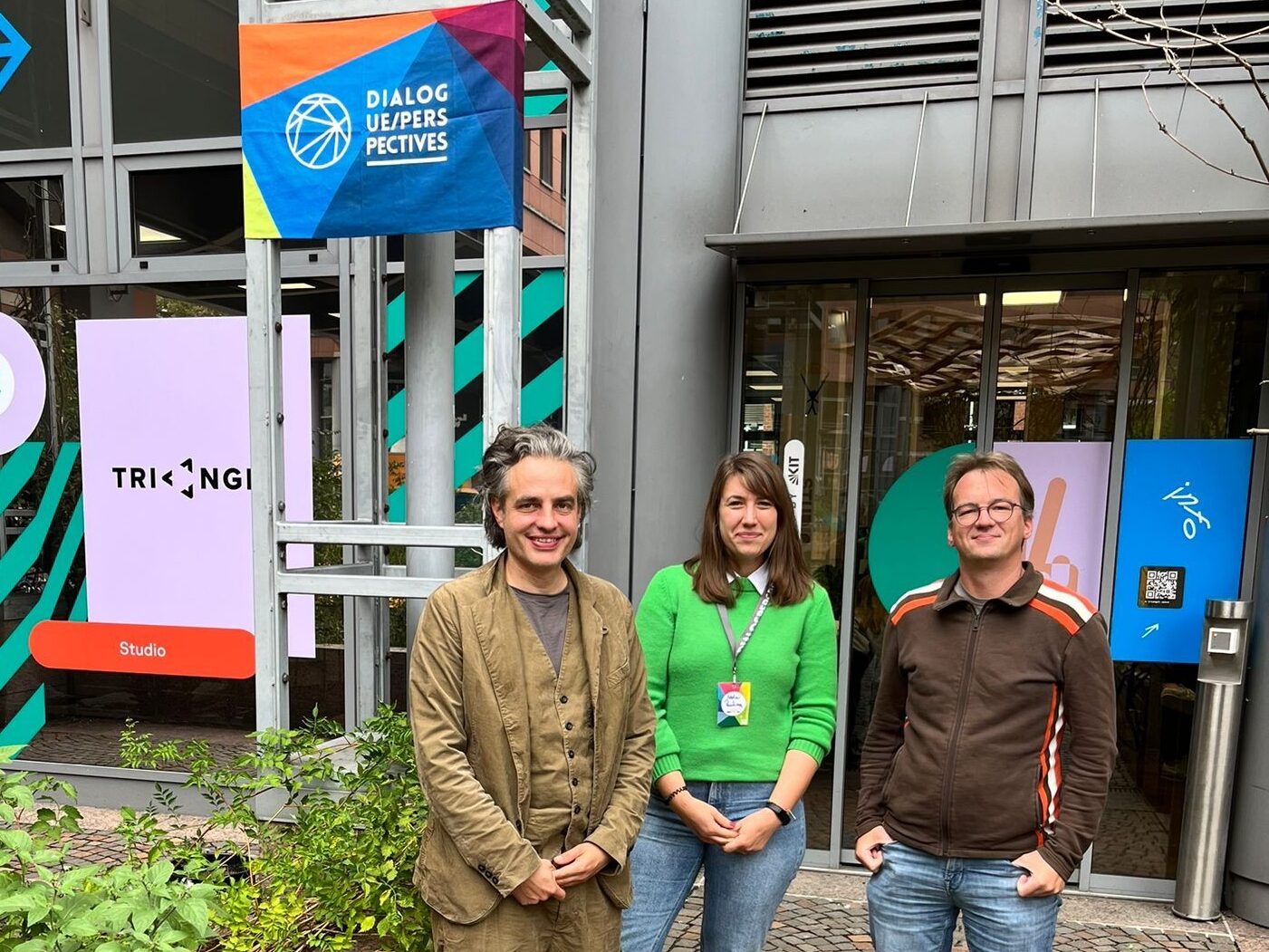
In workshops by TWON’s Prof. Damian Trilling, Prof. Achim Rettinger and Dr. Eugen Pissarskoi the participants learned about research approaches to social media dynamics, the ethics behind creating Twins of Online Social Networks (TWON) and the role of online social networks and AI in digital democracy. Melanie Döring and Marisa Wengeler from Institute for Strategic Dialogue (ISD) held thought-provoking inputs on the EU’s Digital Services Act and media literacy as well as the concept of pre- and de-bunking in the online realm. Nuriyatul Lailiyah gave interesting insights on the usage of social media in Southeast Asia. The participants of the European Leadership Workshop not only discussed on the topics within the group, but also with citizens during public outdoor events in the Triangel Event Space Karlsruhe during a Bar Camp and a World Café format.
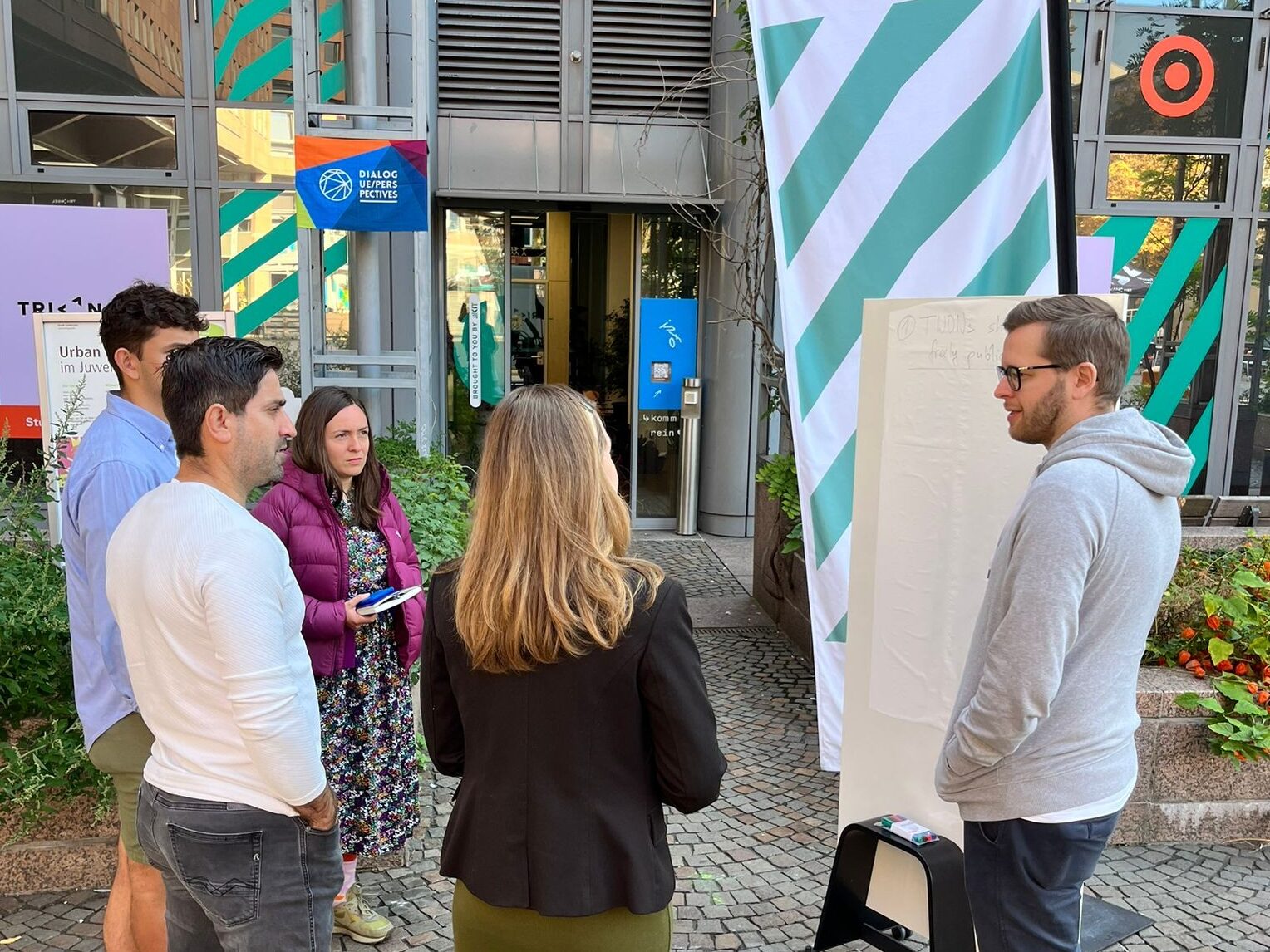
At the end of the 4-day workshop (16.-19. September 2024) the participants worked on a policy brief on necessary regulatory action. This will be used as a basis for further discussion for the scientists of the TWON consortium.
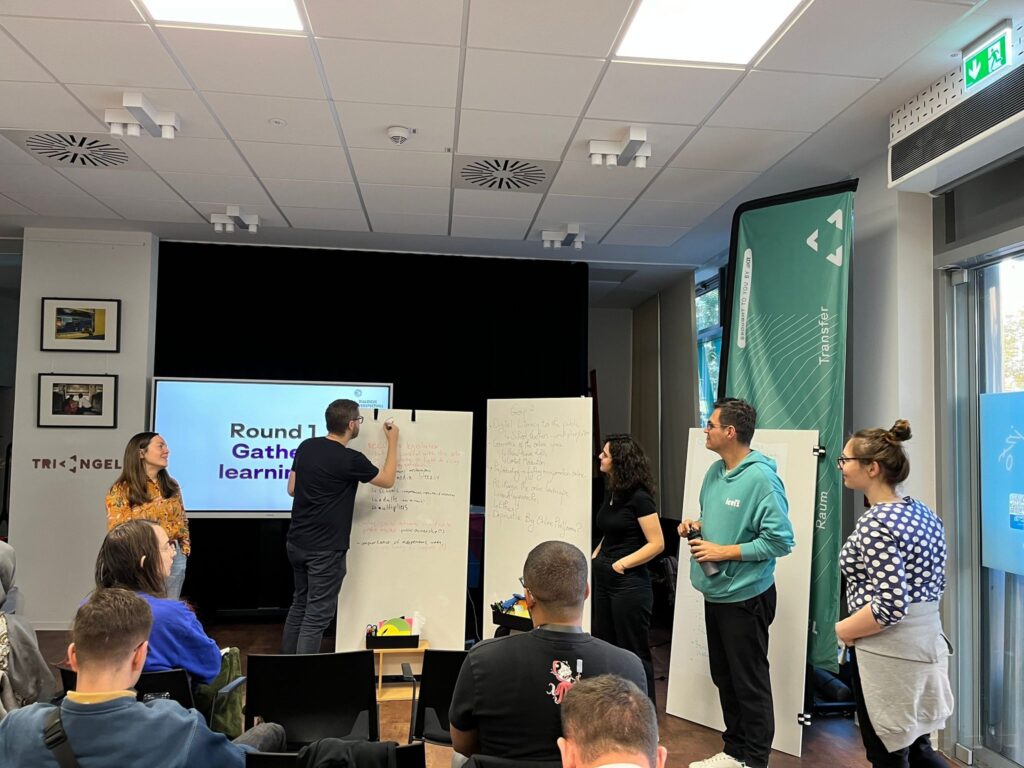
The European Leadership Workshop moderated by DialoguePerspectives’ programme manager Neta-Paulina Wagner is an integral part of the TWON project:
– It works on the translation from research in to actionable solutions.
– It equips participants with the skills and insights needed to navigate and address the challenges posed by digital democracy.
– Participants actively contribute to the broader conversation on digital citizenship and how we can shape a more resilient, informed, and participatory society in the face of rapidly evolving digital challenges.
A big thank you to our partner DialoguePerspectives for organizing the workshop and thank you to all participants for the great discussions!
Project Review Meeting with the EU-Commission in Brussels
On June 4th the first project review meeting of our EU-funded project “TWON – Twin of Online Social Networks” took place in Brussels. This was a great opportunity to reflect the first year of work in the consortium. We received valuable and encouraging feedback by Prof. Kalina Bontcheva (University of Sheffield), José Manuel Gómez Pérez (Director Language Technology Research at expert.ai) and Ilona von Bethlenfalvy (European Commission), which we will use in the next steps of our project.
On the previous day we also had a consortium meeting in the representation of the state of Baden-Württemberg to the European Union in Brussels – thank you for hosting us!
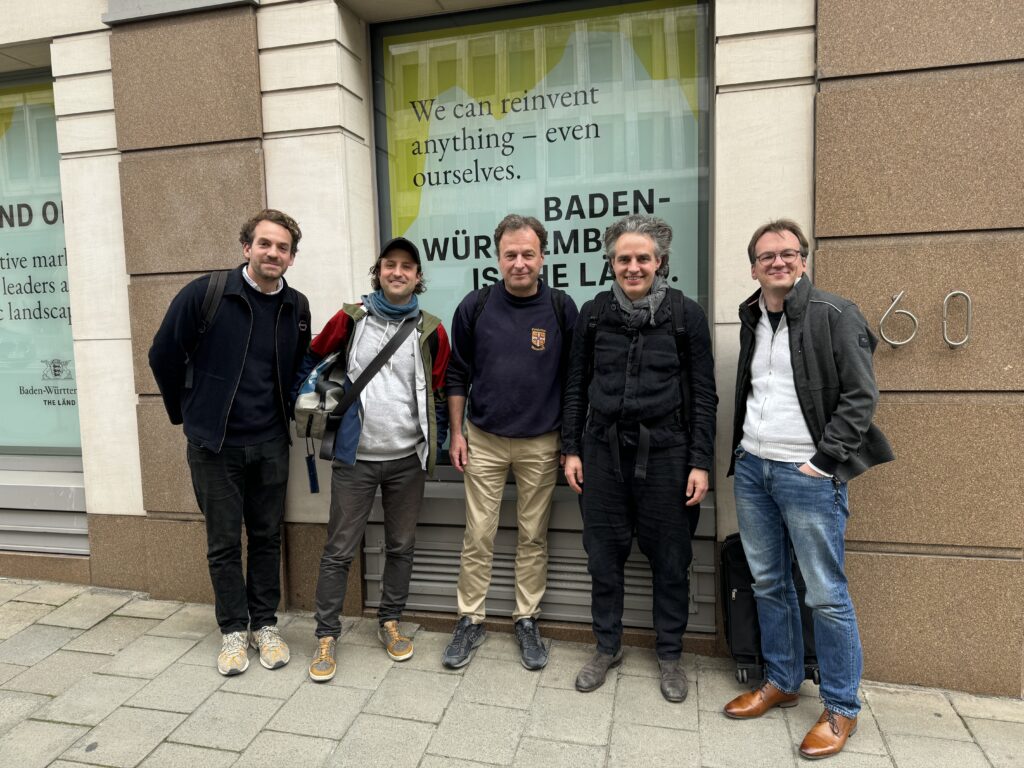
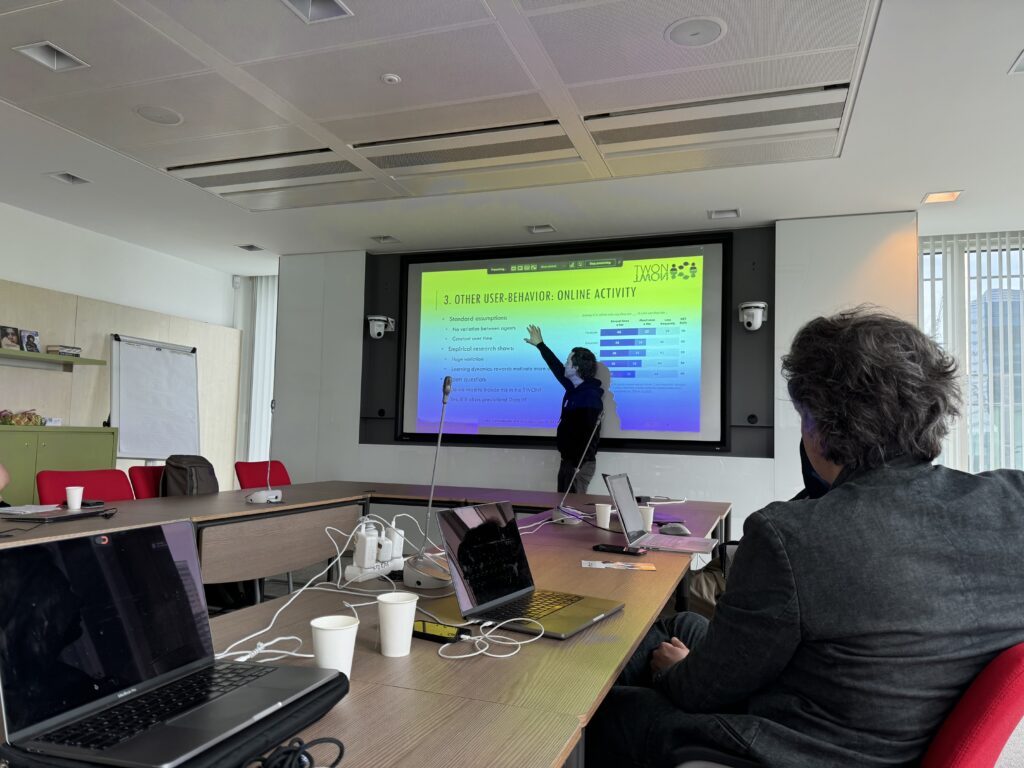
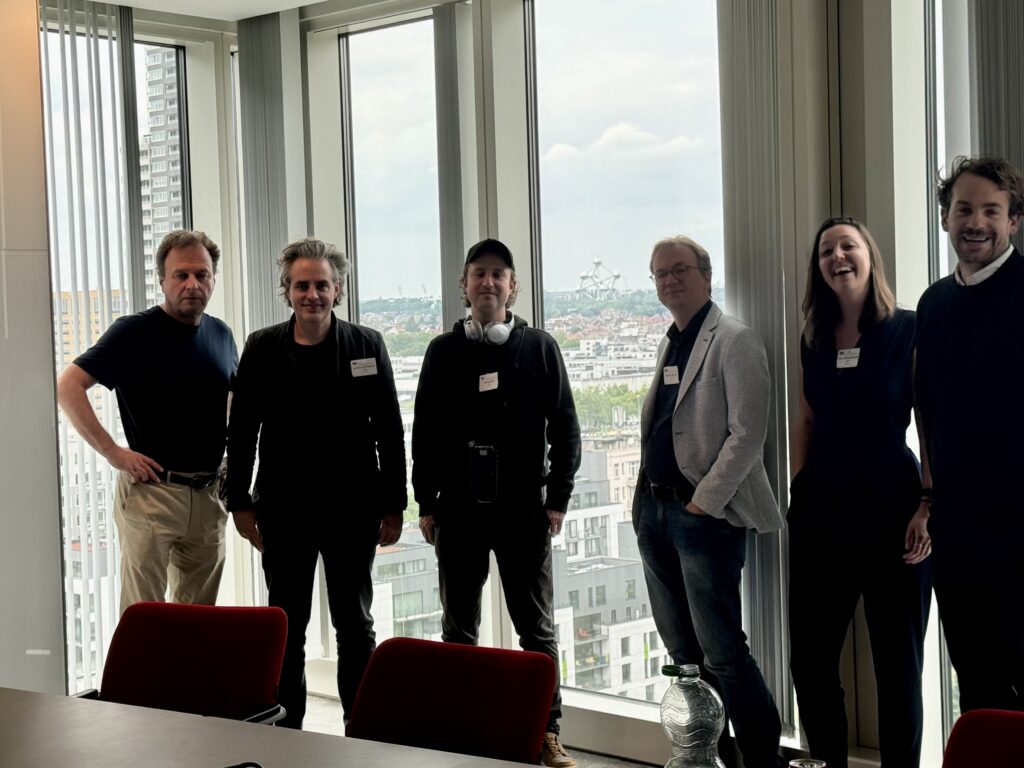
and Jonas Fegert (left to right)
Consortium Meeting in Trier in March 2024
After nearly a year and two consortium meetings in Amsterdam and Karlsruhe, the TWON team met again on March 11. to March 13. 2024 in Trier. University Trier (UT) planned two intensive days to collate previous developments and direct the project into the first simulation phase. However, before diving into the workshops and presentations, UT hosted an auxiliary welcome dinner where early arrivals could taste regional produce in a nostalgic setting beside the old-town cathedral.
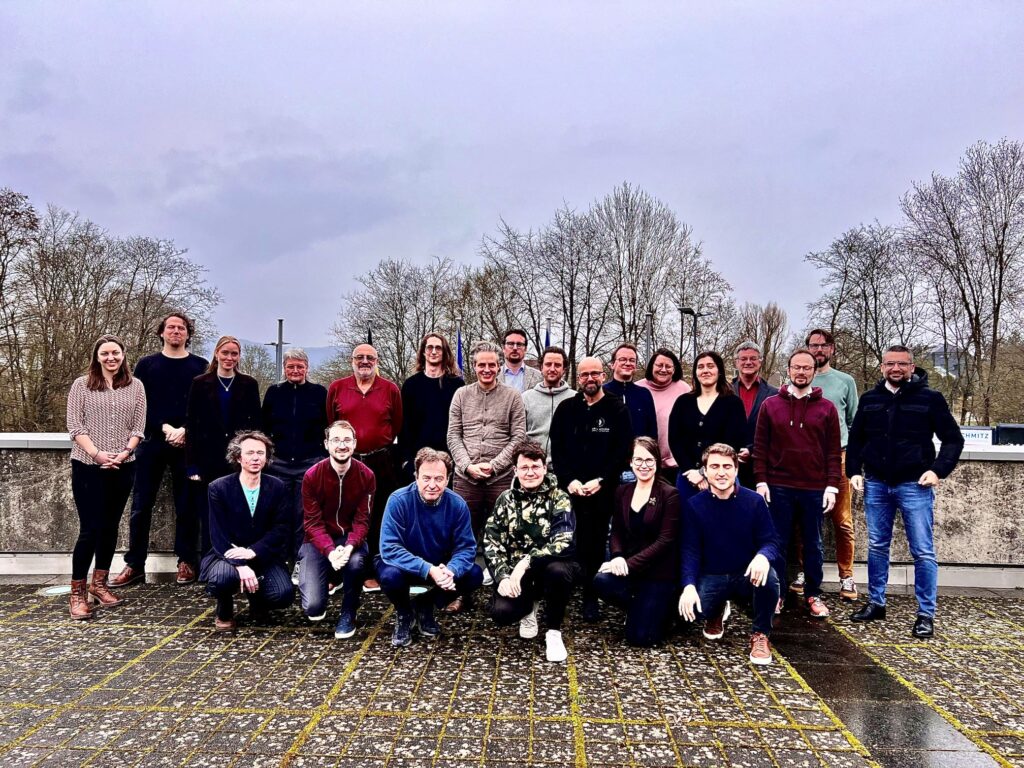
Lifted by the ancient Roman spirits and their legacy, the team started the first day by providing updates about the work of each partner. The presentation showed that the team came a long way from their theoretical proposals defined in the last consortium meeting to the first experiments and insights. As planned, the team formed independent working groups to maximize their efficiency during the TWON implementation. Concerning the user simulation, Michael Heseltine presented the first analysis of the human-perceived authenticity of synthetic content across European languages as a joint work with Simon Münker. Michael Mäs and his team proposed a recommendation system, a global white-box approach as a baseline, and Sjoerd B. Stolwijk an initial definition to assess the discourse quality. The modules allow separate usage for fundamental research and utilization in similar scenarios. However, without a technical backbone, their usability is limited. Abdul Sittar presented a refined version of this backbone, almost ready for the first simulation.
Besides focusing on direct project progress, Achim Rettinger, the host of this meeting, invited the UT law department. To broaden the perspective of the team members, the law department discussed the upcoming regulations in the EU concerning AI and social media networks (OSN). While not having a direct influence, this interlude presented opportunities for TWON to possibly engage with OSN providers to request data. Dripping like soaked sponges full of impressions, the team stopped for some last nuggets, this time drinks and food, at a local winery.
Not only educated by yesterday’s presentations but also the numerous ingenious conversations between wine and dinner, the team gathered for the second day to plan the next steps. With a focus on the upcoming case study, the research group split into breakout sessions to decide the experiment’s boundary conditions and subsequent steps. Thus, in unanimous agreement, the team decides to conduct the controlled field study in a hybrid setup, with humans and agents, discussing the upcoming Ukrainian elections.
The meeting ended with a guided exploration of the historic city center and famous Roman architectural buildings. Trier, the oldest city in Germany, residuals reminiscent of its long-gone power as the capital of the Roman Empire, is now possibly a stone in the pathway toward human-centric AI. The next meeting will occur in Dubrovnik, a place equally historically impactful!
